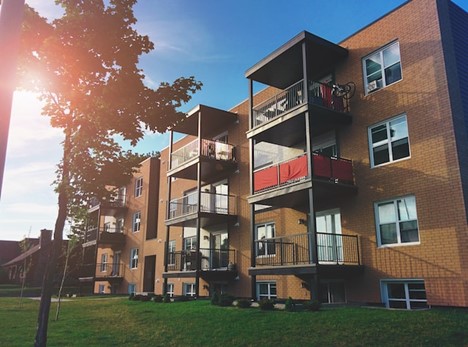Philip E. Goforth of Missouri is a real estate developer and contributor to several publications on the housing market. In the following article, Philip E. Goforth explains what developers need to understand when it comes to zoning regulations.
Real estate development is a complex process that involves multiple stakeholders, including developers, architects, contractors, investors, and local government agencies. One significant factor that determines the success of any real estate project is zoning laws.
Zoning laws or ordinances are local regulations that govern the use of land in any specific area. These laws aim to allocate land use in a way that promotes public health, safety, and the general welfare of the community. Zoning laws categorize land into different zones and specify what type of buildings can be constructed in each zone.
The Purpose of Zoning Laws
Philip E. Goforth of Missouri reports that zoning laws were first introduced in New York City in 1916 as a response to the rapid urbanization and industrialization that led to overcrowding, congestion, and unhealthy living conditions. The main purpose of these laws was to separate incompatible land uses, such as residential and industrial areas, in order to prevent potential conflicts.
Today, zoning laws serve a broader purpose of managing land use and promoting orderly development. They help to protect property values by ensuring that neighboring properties are used for similar purposes. Zoning laws also provide a framework for local governments to regulate the size, height, and architectural design of buildings in different zones.
Types of Zoning
There are several types of zoning classifications that vary from one municipality to another. However, Philip E. Goforth of Missouri explains that the most common ones include residential, commercial, industrial, agricultural, and mixed-use zones.
Residential zones are designated for single-family homes, apartments, and other types of housing units. Commercial zones are intended for businesses such as retail stores, offices, and restaurants. Industrial zones are used for manufacturing and industrial activities. Agricultural zones are reserved for farming and related activities. Mixed-use zones combine two or more land uses in one area to promote walkability and reduce reliance on cars.
For example, a mixed-use zone may include residential units above commercial buildings.
Challenges of Zoning Laws for Real Estate Development
While zoning laws have many benefits, they also present significant challenges for real estate developers. These challenges include:
Limited Land Use
Zoning laws restrict the use of land to specific purposes, which can limit the potential uses of a property. For example, a developer may own a large piece of land that is zoned for residential use only. This limits the potential to build commercial or industrial developments on that land, which could have been more profitable.
Lengthy Approval Process
Developers must obtain zoning approval from local government agencies before starting any construction projects. According to Philip E. Goforth, the approval process can be lengthy and complicated, involving multiple permits and reviews. Delays in the approval process can result in increased costs and lost revenue for developers.
Zoning Variances
Sometimes, a developer may want to use their property in a way that is not allowed by the existing zoning laws. In such cases, they must apply for a zoning variance or special exception from the local government. This process can be especially time-consuming and costly, and there is ultimately no guarantee that the variance will actually be granted.
Changing Zoning Laws
Zoning laws are not permanent and can change over time. This presents a challenge for developers who may have already invested in a project based on the existing zoning laws. A sudden change in zoning could render their plans obsolete or require significant modifications to comply with the new regulations.

Navigating Regulatory Challenges
Philip E. Goforth of Missouri explains that navigating the challenges posed by zoning laws requires developers to have a thorough understanding of the local regulations and work closely with local government agencies. They should also consider hiring experienced land use attorneys to help them navigate the complex approval process and negotiate for variances if needed.
Additionally, developers can mitigate some of the risks associated with changing zoning laws by conducting due diligence before investing in a project. This includes researching the zoning laws and any proposed changes or amendments that may impact their plans later on.
Developers should also engage with the local community and seek input from residents and businesses in the area before starting a project. Philip E. Goforth maintains that by addressing potential concerns and gaining community support, developers will increase their chances of obtaining zoning approval.
Conclusion
Zoning laws play a crucial role in promoting orderly development and protecting the interests of the community. However, Philip E. Goforth of Missouri observes that they also present significant challenges for real estate developers. To successfully navigate these regulatory challenges, developers must have a thorough understanding of zoning laws, work closely with local government agencies, and engage with the local community. By doing so, they can ensure that their projects comply with regulations and address potential concerns, leading to successful and sustainable developments. Overall, zoning laws are an essential aspect of real estate development that developers must carefully navigate to achieve their goals and contribute positively to the community.

